Playful Learning Environments
Motivating Play Activities
The Play Activities are designed to make the children want to engage in the learning environment. Learning and development is a process in which the children construct their knowledge through motivated participation in the learning community with inspiring materials and meaningful play.
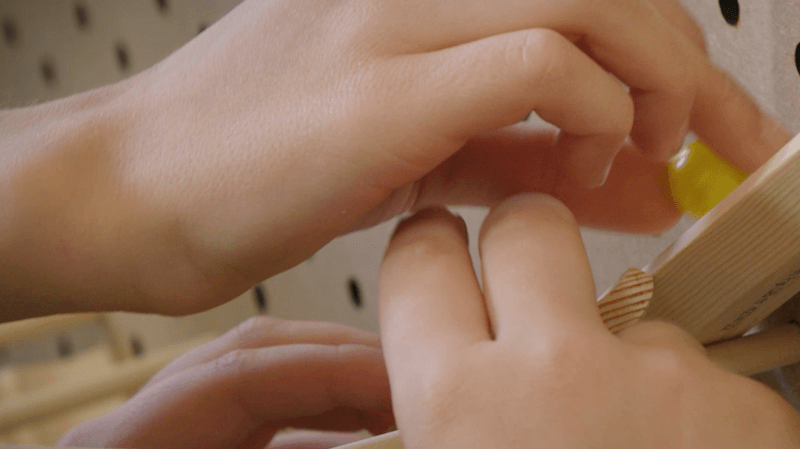
Visible Reflection Routines
The Reflection Routines help us make social learning concrete and visible so we are better able to explore and share our learning – and thereby, deepening it together. For this, we use objects to create and mediate the reflection and enable dialogue. In this way, reflection becomes tangible.
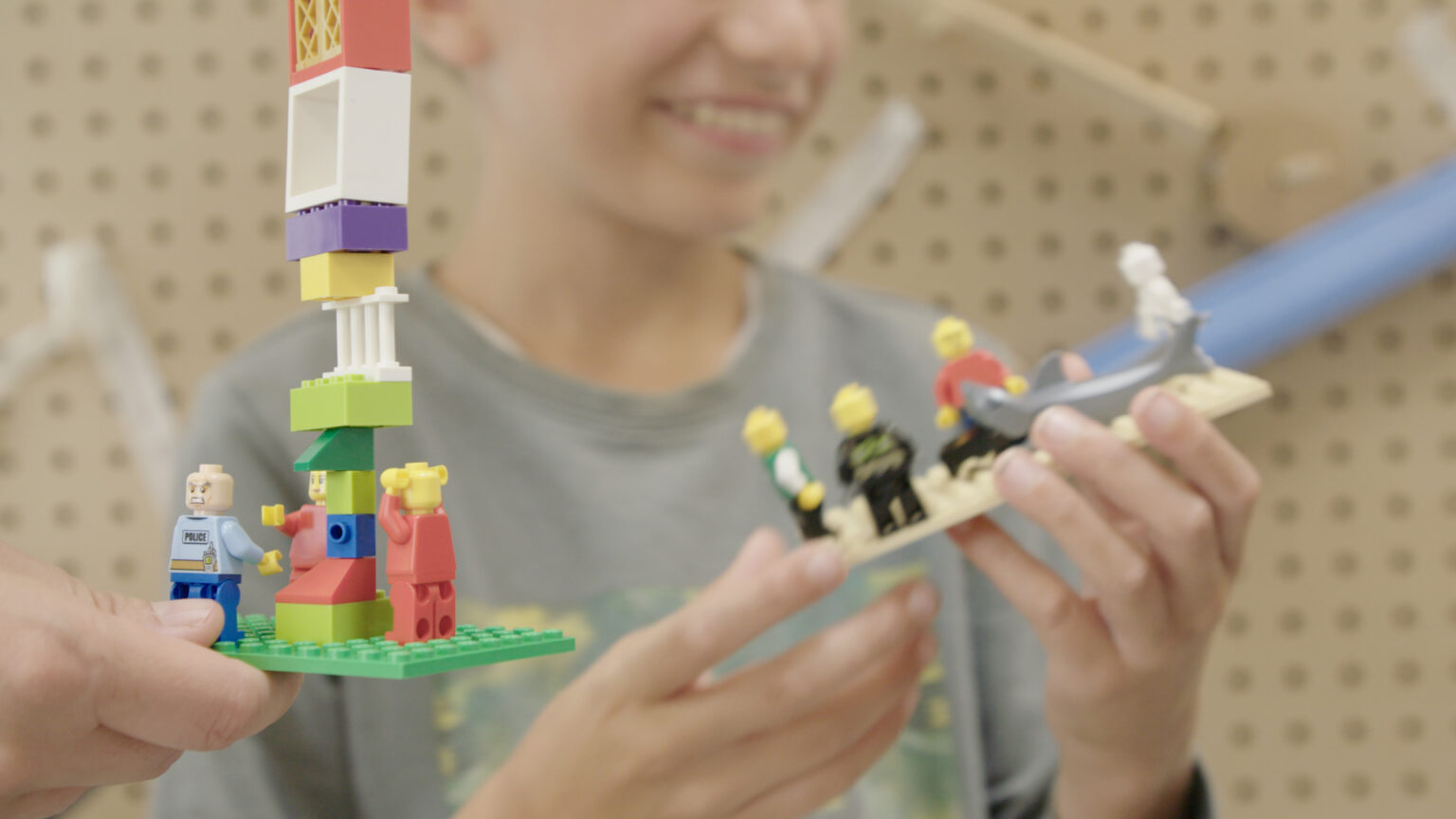
A Playful School Culture
It takes a playful school culture to anchor and implement playful learning environment; a curious mindset, a shared language, and a lot of courage to try out and experiment with play activities and reflections routines that can be made the subject of collegial reflection on one’s own educational practice.
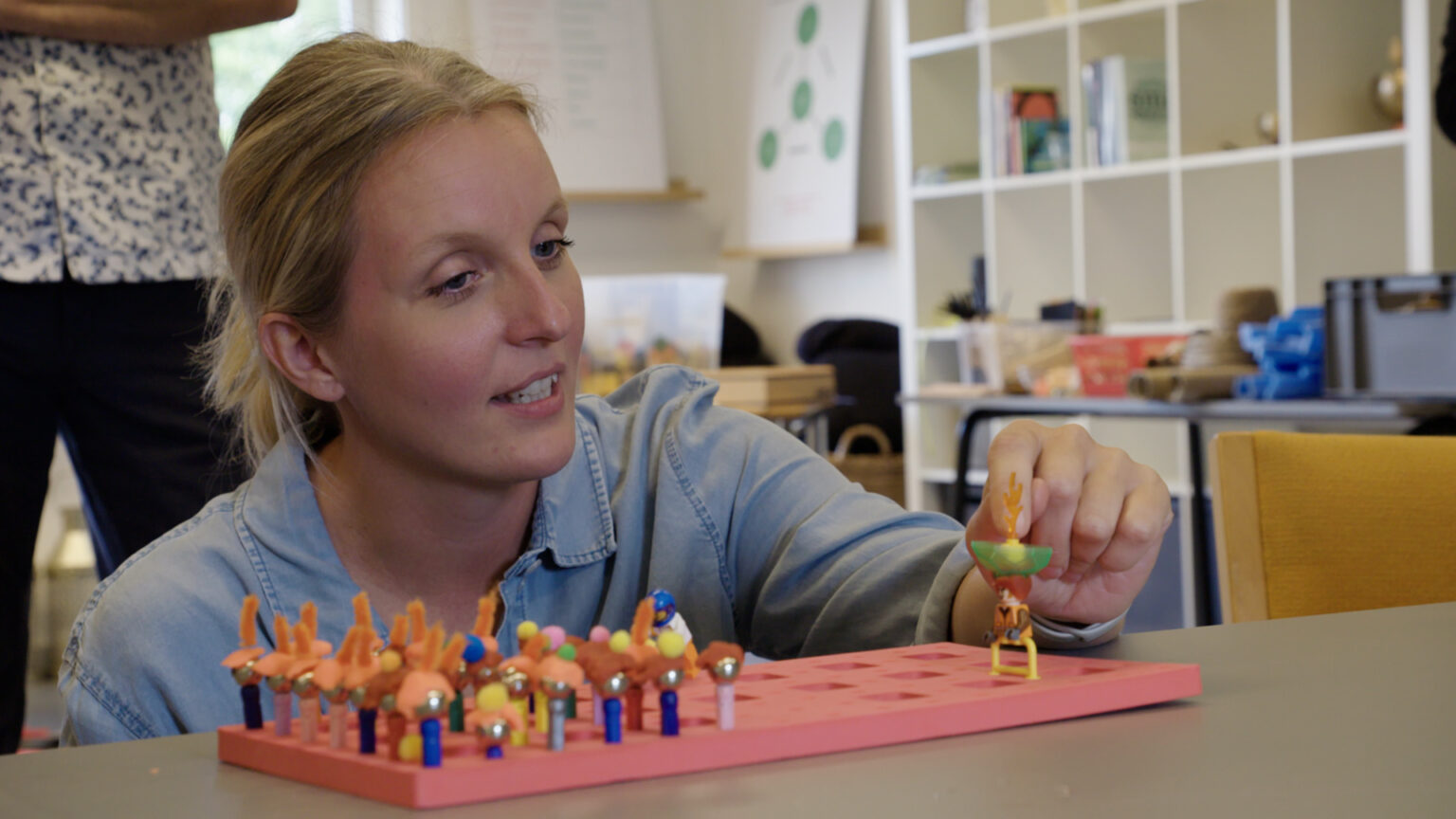
Get Started
You can use the material on this website to design and try out playful learning sessions that motivate the children to engage in and reflect on their learning together. You only need a knowledge of the children and the will to try. You can use our step guide below to design a learning session.
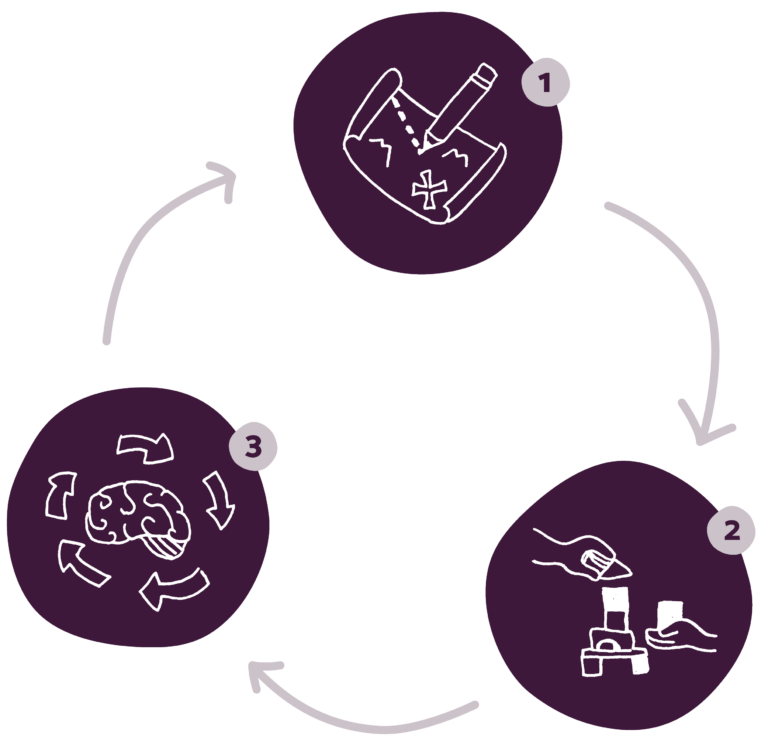
Preparation
During the preparation, we ask ourselves: What do we hope that the children discover?
We set up a learning goal, a focus, a hypothesis, or a challenge that lies within the children’s zone of proximal development.
Pretty much all play activities and reflection routines can be adapted to any social learning goal. The art is to design the play and the reflection in such a way that the children have opportunities to make their own discoveries in relation to the learning objective.
The preparation is also very much about framework that is vital for creating a feeling of safety and meaning in the learning environment. Every play activity has a suggestion for a framework that can inspire you. Remember that all children benefit from knowing: What? Where? How? Why?
You can use the preparation sheet or be inspired by the questions therein.
Play and Reflection
The depth of learning depends on the child’s attention and engagement, which is why we play. The play activities are a means for the children to gain social experiences, which can be made the subject of reflection.
We scaffold the learning process and deepen the learning through reflection routines. Many children benefit from social discoveries being made concrete and visible, and the children themselves can also be involved in this.
The reflection routines are always based on the children’s experiences and discoveries from the play situation.
Perhaps the children made completely different discoveries than what you expected, and that is only beautiful. We succeed when the child has been engaged and has reflected on his or her learning together with others.
Professional Considerations
An engaging and reflective learning environment does not evolve by itself. This requires us to reflect professionally after the play session: What did I see? What do we take with us next time? What should be done differently next time?
For our considerations, we can use the reflection routines as our documentation and starting point. On that basis, we can adjust the learning focus and the play activity, so that the children have the opportunity to work on their discoveries and initiatives in the next play session.
Working systematically with our professional considerations is a way of following the learning outcomes and development of the learning process and the children.
You can find inspiration for professional considerations in the evaluation sheet.
About the Project
CollaboLearn
The material was developed as part of the project, CollaboLearn, which is a collaboration between the Interacting Minds Centre at Aarhus University and Langagerskolen, a school for children with autism and ADHD, in Aarhus. The purpose of the project is to strengthen the inclusion of autistic people in our society. As part of doing this, the material is based on play and reflection as two core ingredients for motivating and meaningful learning processes in special educational practice. The project is supported by the VELUX FOUNDATION.
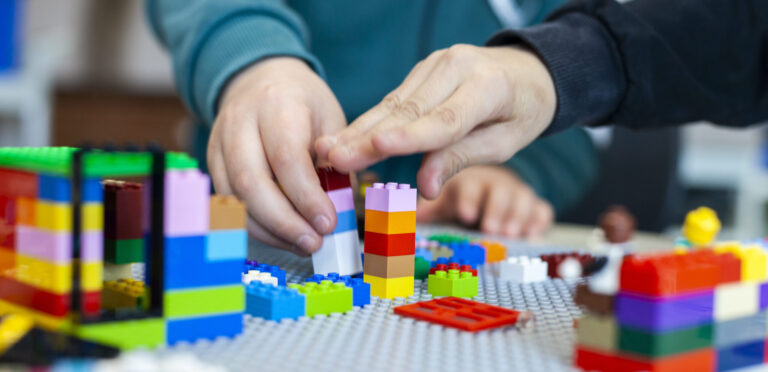
Share Your Experiences

CollaboLearn is licensed under Creative Commons CC-BY-NC-SA. The material may freely be shared, developed, and remixed for non-commercial purposes provided that the original material is credited and that any further development is licensed under the same license. The illustrations in the material are own photos, graphics and illustrations as well as graphics from freepik.com. The LEGO® brick and the LEGO® Mini figure are trademarks of the LEGO Group. The material is not created or authorized by LEGO.